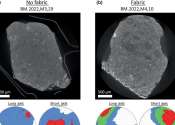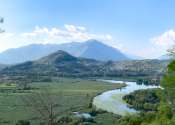Curiosity rover searches for new clues about Mars' ancient water
NASA's Curiosity rover has begun exploring a new region of Mars, one that could reveal more about when liquid water disappeared once and for all from the Red Planet's surface. Billions of years ago, Mars was much wetter and ...









